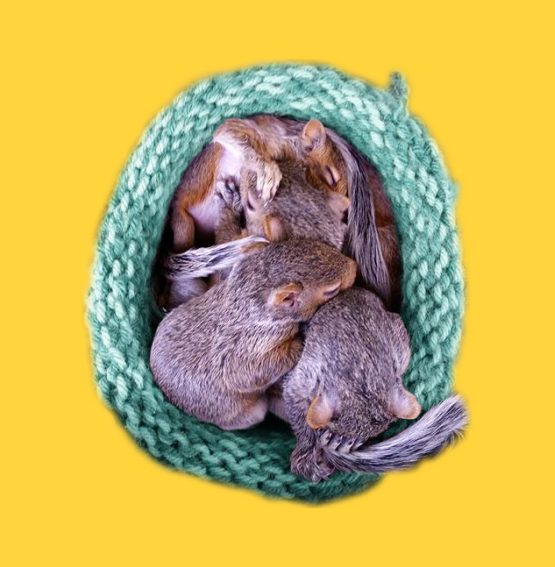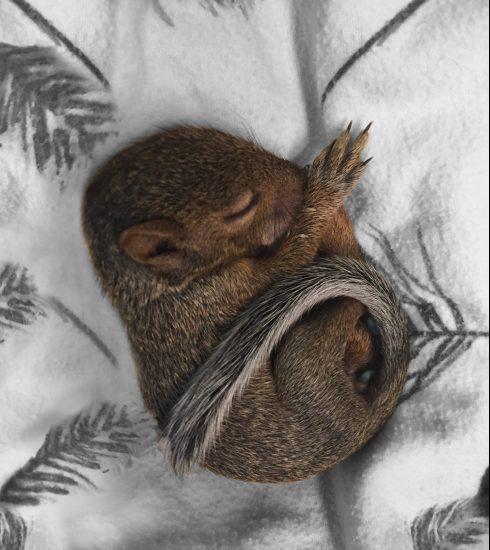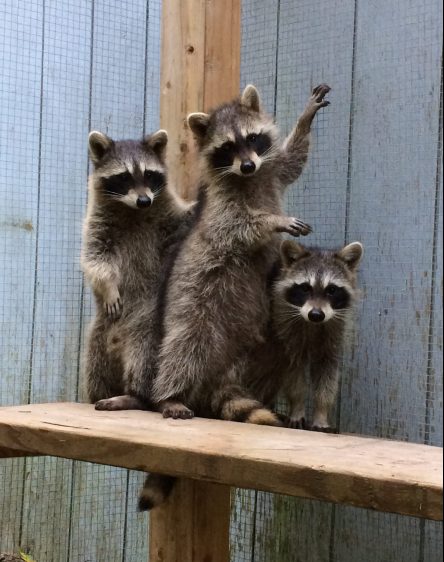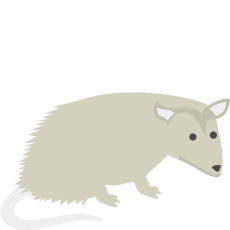
VOLUNTEER
Become a Wildlife Foster!
Wisconsin WildCare (WWC) is a unique organization, made up of independent licensed wildlife rehabilitators and volunteers who work together to rescue and rehabilitate orphaned and injured wildlife. WWC is different from a typical wildlife center, where volunteers come and go day to day. We believe that orphaned mammals do better with the consistency of a primary caretaker.
Our volunteer fosters provide the stable care and regular routine that orphaned mammals need to thrive. Our volunteer fosters are wildlife super heroes! If you live within a 60-mile radius of Lodi or Windsor (per DNR rules), please consider joining us.
Why become a wildlife foster?
Fostering orphaned wildlife is very rewarding. Wildlife babies typically become orphans as a result of a negative interaction between humans and the infants’ mother: car collisions, live trapping, shooting, felling of trees, or conflicts with pets. As a foster, you give these unfortunate little ones a second chance.
You will have the satisfaction of watching them grow into healthy well-adjusted adults by providing sound nutrition, a safe environment and enrichment that teaches them how to thrive in the wild.
As a foster, you will learn more about the species you care for than you could ever imagine.
YES!
You can be a foster, even if:
All of our wildlife rehabilitators, and the vast majority of fosters, have pets. Of course, we keep the wildlife separate from our pets so that they don’t become accustomed to being around domestic animals. If you have a spare room, space in your enclosed garage , an outbuilding or other sheltered space, you could be a wildlife foster.
Many of our volunteer fosters have children. Raising orphaned wildlife is a wonderful way to teach your kids to understand and respect wildlife and to have compassion for animals in need.
As an all-volunteer organization pretty much all of us have paid work and other responsibilities outside of rehabilitation.
Some wildlife rehabilitators and fosters live in an urban environment. A few care for younger orphans until they are old enough for outdoor caging, then transfer the juveniles to a foster who can accommodate outdoor caging. Others raise orphans to release, building outdoor pre-release caging that is sheltered from everyday human activity.
If you have a trip planned, that’s OK…enjoy your vacation. We have experienced fosters who can “babysit” (as long as you promise to come back).


There's a lot to learn
How much formula should I feed? What does normal infant raccoon poop look like (yes, you will ask that)? What kind of enrichment does a juvenile raccoon need? So much to learn, but WWC provides training and ongoing support.
There are rules to follow
Wisconsin WildCare rehabilitators are licensed by the WI Department of Natural Resources and, thus, are required to follow the rehabilitation rules established by the WDNR. In order to stay licensed, we need our volunteer fosters to do the same. A recent DNR rule change limits us to only work with volunteer fosters who live within a 60-mile radius of our advanced wildlife rehabilitators. That means that you must live within 60 miles of either Lodi or Deforest. If you live outside that area, but are interested in becoming a licensed rehabilitator yourself, let us know and we’ll do what we can to help you.
There are commitments to be made
Wild mammal infants form a bond with their caretaker. (This is not to be confused with imprinting.) It is extremely stressful to them to have that bond broken before they are ready for release.
WWC understands that life sometimes throws a curveball and drastic changes in plans may have to be made. In such a case, we will work to place the animals in your care with another foster volunteer . However, we can only do so rarely and for good reason. Therefore, be sure to check with your spouse, review your calendar, and check with your neighbors or landlord (if you have one) before committing to be a wildlife foster.
Still Interested?
Great! The next step is to fill out a foster application. Applications are accepted year-round, but the greatest need for fosters is during “baby season”, from March through October.
Orientation training sessions are held in late winter to early spring. Soon after you submit an application, look for an email invitation listing upcoming training dates.
All Wisconsin WildCare volunteers must attend an orientation training. (If you’re not 100% sure fostering is right for you, the orientation sessions are a good place to learn more.)
If fostering is not a good fit for you, we have other volunteer opportunities too. Check out our Open Positions, or just send us an email at info@WIWildCare.org.

